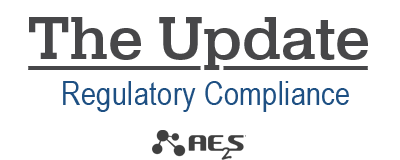Bipartisan legislation has been introduced in both the U.S. House and Senate related to per- and polyfluoroalkyl substances (PFAS) contaminants, including perfluorooctanoic acid (PFOA) and perfluorooctane sulfonate (PFOS).
In the House of Representatives, the Protect Drinking Water from PFAS Act of 2019, H.R. 2377, would require the U.S. Environmental Protection Agency (USEPA) to set an enforceable, nationwide primary drinking water standard for PFAS. The proposed legislation directs USEPA to publish a maximum contaminant level goal and promulgate a national primary drinking water regulation for total PFAS.
“PFAS contamination is one of the greatest public health crises of our time. This bill directs EPA to at long last take that crisis seriously, and set a strong, binding nationwide drinking water standard,” said New Jersey Representative Frank Pallone, Jr, Chairman of the Energy and Commerce Committee. “Americans deserve to know their drinking water is safe.”
In the Senate, the PFAS Accountability Act was proposed in mid-May. The legislation would hold federal agencies accountable for addressing contamination related to PFAS at military bases across the country. It bill was reintroduced just days after the release of a report that indicates 19 million people in 43 states have been exposed to PFAS-contaminated water. The PFAS Accountability Act sets clear deadlines and reporting requirements for cleaning up PFAS contamination at federal facilities across the country, including active and decommissioned military bases, and mandates greater transparency. It also calls on federal facilities, including military and National Guard installations, to expedite cooperative agreements with States to address PFAS contamination. These agreements commit the federal government to take specific actions and enable states and local communities to be reimbursed for costs incurred to address PFAS contamination.
“The potential health effects related to PFAS exposure are alarming, which underscores the urgent need to implement a coordinated federal and state response effort to clean up dangerous contamination from these materials as soon as possible,” said New Hampshire Senator Jeanne Shaheen. “The PFAS Accountability Act will ensure accountability and transparency in protecting the health and safety of our drinking water. Remediation is a critical component to combating water contamination, which makes this bill so important in our strategy to end PFAS exposure.”
Both bills will be considered over the upcoming weeks.

